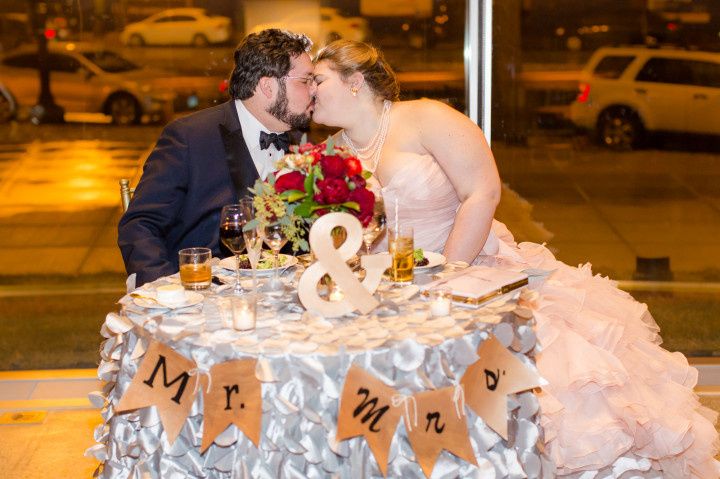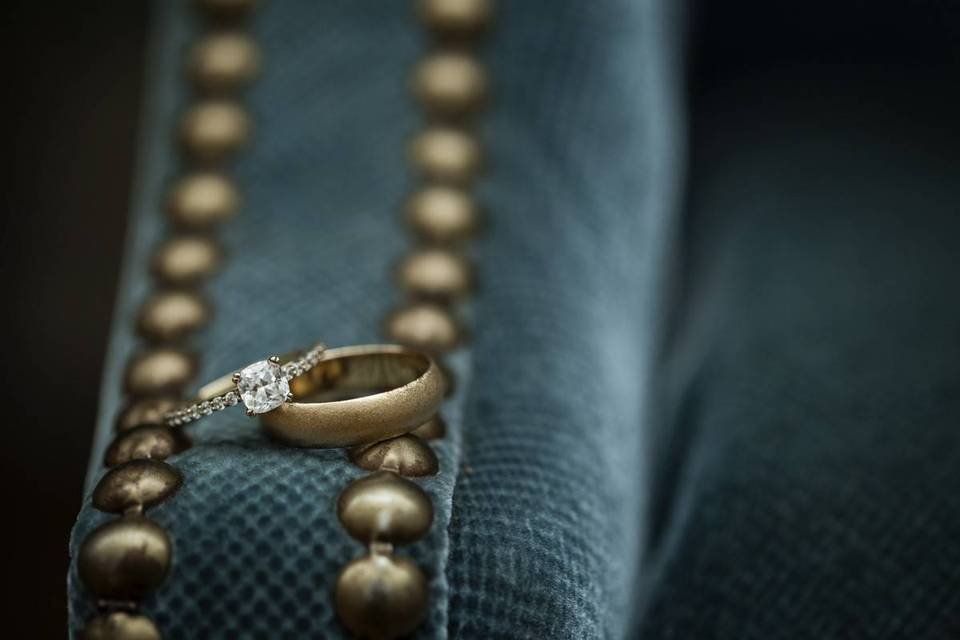5 Reasons to Create Your Own Last Name After Marriage
Newlyweds have lots of options when it comes to changing or keeping their last names. Here’s why you and your partner should consider creating a brand new one.

What to do with your surname is an important decision every newlywed couple faces. It’s common for women marrying men to change their last names in order to take their husband’s family name. In fact, 79 percent of all couples include one partner taking the other’s name, according to WeddingWire’s Newlywed Report. However, the traditional route is hardly the only way to go. Some couples simply keep their different surnames, while others may agree to one partner legally changing their name, but keeping their given surname for professional reasons. A less popular, but growing alternative is to create your own last name, one for the both partners to take on as their own.
Even if you’ve never considered it, here are 5 reasons why you and your partner should create your own last name after marriage.

It’s a fresh start.
There are lots of ways to denote family with a shared surname, like hyphenation to include both your father and your husband’s father’s name, but a brand new name is a truly clean slate. Instead of picking one partner’s family to honor or not choosing a shared family name, creating a new last name after marriage is the beginning of a new legacy. Some couples opt for combining last names for marriage— for example, Jones and Henry might become Jenry or Hones — while others research names of cultural, religious or symbolic significance they’d like to apply to their new family. Picking a new surname isn’t a task to be taken lightly as you’re essentially restarting your family’s legacy for the next generation. Consider the implication this might have on the most important people in your life, like your parents, grandparents and others who share your premarital last name.
Both partners share in the name change.
Navigating the legal system to change names after you marry is a well-documented annoyance that disproportionately falls to women who take their new husband’s last name. By choosing to create a new family name over taking just one partner’s name, both partners go through the process of changing names. This not only applies to the administrative tasks — hello, trip to the Department of Motor Vehicles — but also the experience of becoming known as a different person at work, through your mail and other places where your last name routinely makes an appearance. For some couples, sharing this new aspect of married life will truly represent marriage in modern times.
It’s perfect for same-sex couples.
While it’s not uncommon for LGBTQ couples to choose one or both partners’ surnames to carry—although far less common than straight couples—picking a new last name after marriage is a unique way to avoid heteronormativity. This might be as simple as choosing to combine names. As in, Groom Jones and Groom Henry become the Jones Henry’s or the Henry Jones’. An arrangement like this is a simple nod to both families, but also creates a new legal name for the family and any future children. Other LGBTQ couples who look to picking a new last name after marriage may get a bit more creative in selecting their new, legal surname with something that hints at new freedoms or acceptance.
You can still honor your roots.
A common resistance to dropping a premarital surname is from parents or grandparents who have strong cultural ties to their name. This could be due to an immigrant history or belonging to a racial, religious or ethnic group that has faced discrimination and therefore is fiercely proud of their origins. New couple names need not completely abandon the heritage of the partners. If this applies to you or your partner, consider researching name roots, language patterns or other lexical ideas to create a last name that highlights your family history. This is also a rare opportunity to combine your heritages by creating a name that speaks to both backgrounds either in meaning, spelling or some other aspect.
It’s not that difficult.
Selecting one partner’s name is often the path of least resistance as it’s common, widely discussed and understood by all. And, even though it can take a few months to sort through how exactly to change your last name, at least there’s a blueprint for how to get it done. (Try HitchSwitch, a service that legit handles all that name change paperwork for you.) When you’re creating a new family name, none of those things is true, so some couples are simply intimidated by the prospect of researching, debating, choosing and then going about legally changing. However, rest assured that more couples are embarking on this experience, so you’re not alone. Plus, in the eyes of the law, a name change is a name change, so the process for updating your personal information won’t differ much from other newly married people who’ve gone before you.





